












By LEE PROVOST lprovost@shawmedia.com
Helping Kankakee and Will county farmers grow their best crops is the mission of Heritage FS, located just east of the tiny St. George community in eastern Kankakee County.
But don’t think the company is only working on grain production for area agriculture professionals.
The company has also been busy for the past three years planting the seeds for what has been an approximate $10 million site expansion in the middle of corn and soybean production in this ag-based region.
“It’s been a long process,” said Jeff LaFollet, Heritage site manager. “But it’s been worth it.”
For their efforts to upgrade and invest,
Heritage FS has been named the Daily Journal’s 2025 Progress Award winner for Innovator in Agriculture. The investment started in August 2022 with a 9,600-square-foot maintenance facility.
That was just the start.
Heritage FS then constructed a 1 million-gallon liquid nitrogen tank on the property’s northern edge of a 14-acre location. The large black tank was completed in late 2022.
Management then received the construction go-ahead on the state-of-the-art liquid fertilizer and chemical storage and loading build-

ing. The project began in late 2022.
Like so many construction projects in the post-COVID-19 world, some building materials were in short supply, which lengthened the construction process. The project is expected to be completed this month, LaFollett said.
This expansion will allow the site to have 75,000 gallons of liquid herbicide on hand as well as 180,000 gallons of liquid fertilizers.
LaFollet and J.D. Marquis, of Herscher, the location’s precision farming specialist, said this increases its ability to serve the region’s
farmers with its 25-member full-time staff.
“I’m impressed,” LaFollet said as he looked out his office window at the plant and its operation. “I’ve been around this type of stuff all my life. This is something.”
As there have been site consolidations throughout the FS network, Marquis said it was clear the St. George location urgently needed to increase its capacity.
“We knew we had to increase what we do here to serve our farmers,” he said.
The expansion challenge was simple. It was an existing site. How could the additions fit into the site’s layout?
Simple, the two men said. Some deconstruction had to take place before reconstruction could happen.
“We work with an existing site. Things sometimes take time,” LaFollet said.
The site is often busy with farmers coming to get their needed product. The site has become so automated that farmers can collect what they need, have it weighed and billed, and be on their way without needing assistance
In a certain way, some of the process has become self-serve.
All of this was being completed for one simple reason. Sales have grown.
Sales have grown threefold since they purchased the location in November 2000 from St. George Ag, LaFollet said. “It was a great move as a company to move here.”
While the site has had many names throughout its long history, it was an Oliver tractor and farm implement dealership







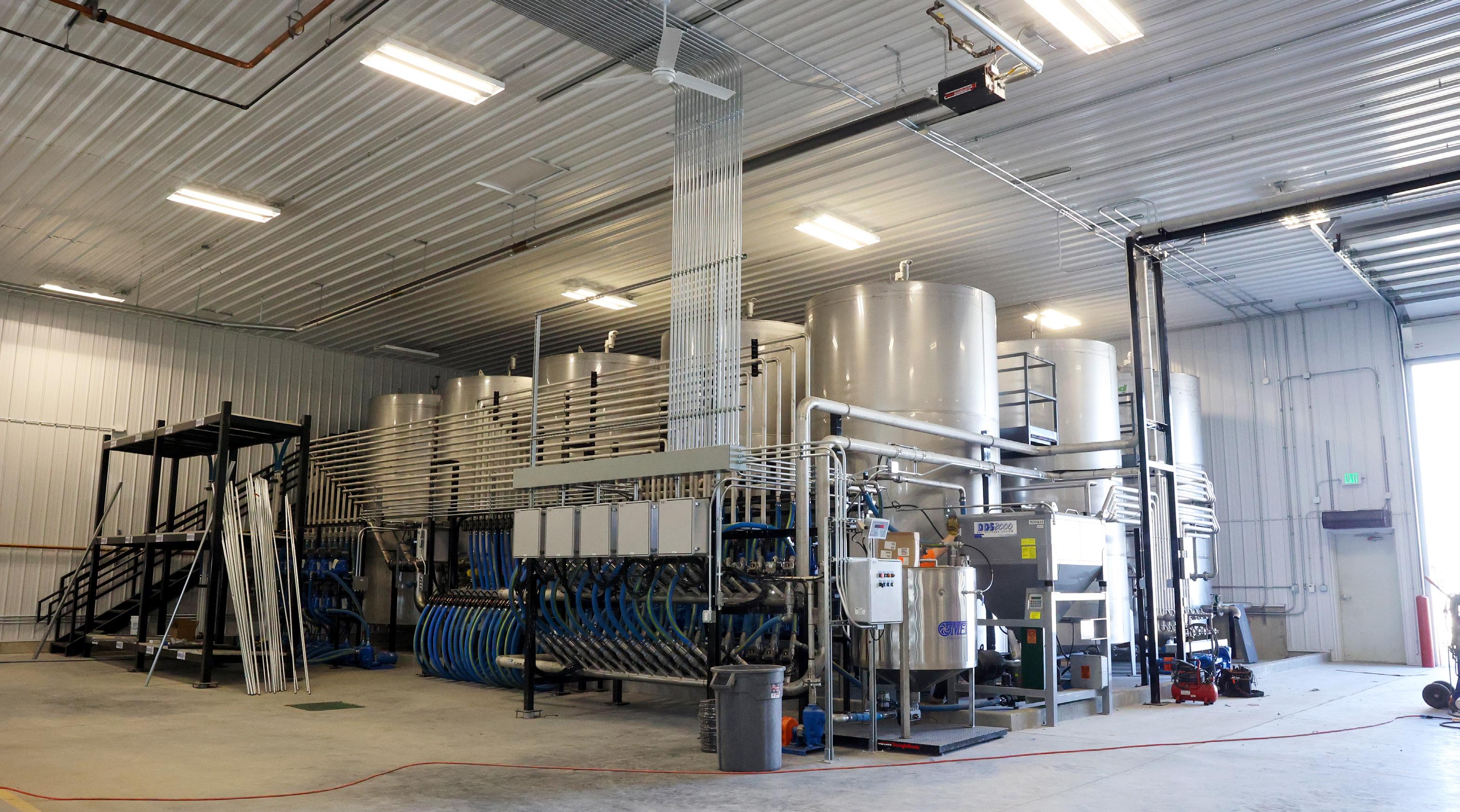
• HERITAGE FS
From page 1
The site has come a long way. And it has a long future ahead. The location is one of four Heritage FS sites within Kankakee County. There are sites in Herscher, Grant Park and Kankakee (along Grinnell Road).
“There are lots of moving parts here,” LaFollet acknowledged. Planting season tends to be the most hectic as every farmer wants to get the seed in the ground as soon as possible.
Fall is also a busy season, but there’s typically a bit more time to apply treatments once the grain has been harvested.
Both men were raised on farms and are University of Illinois graduates.
While it would appear that all farmers would need service at the same time, LaFollet said that is not the case.
Different soil types and weather often lead to subtle variations in the need for certain applications. In the end, it always works out, meaning potential crises are avoided and the seed gets sown into the ground at the appropriate time.
“We take care of the first farmer who walks through our doors and the last and everyone in between,” LaFollet said.
For more information, visit heritagefs.com.
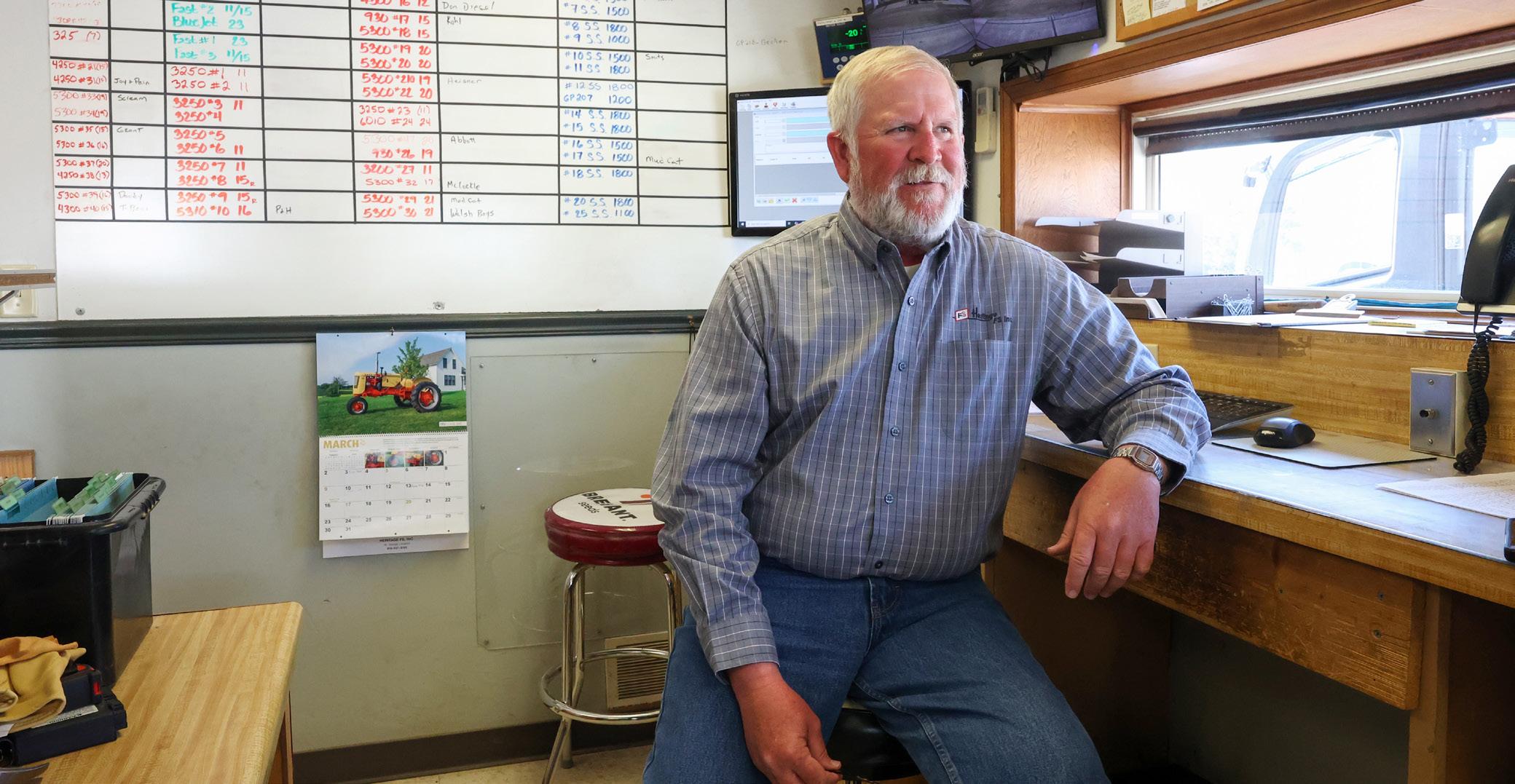


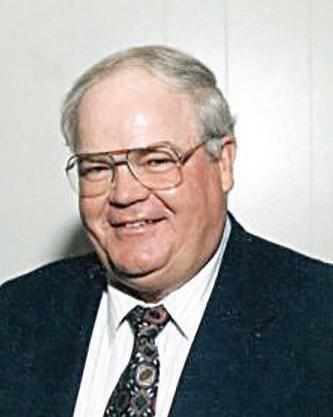

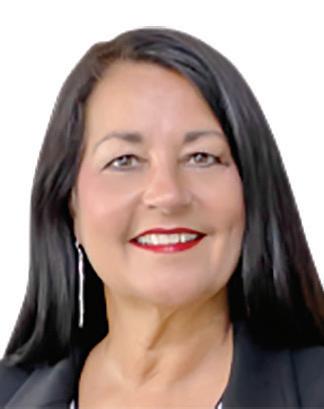
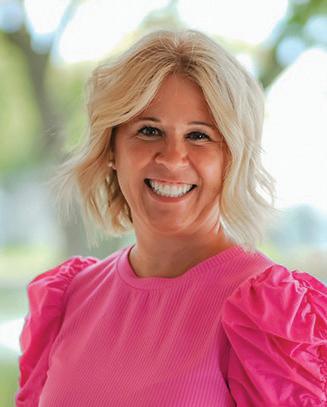



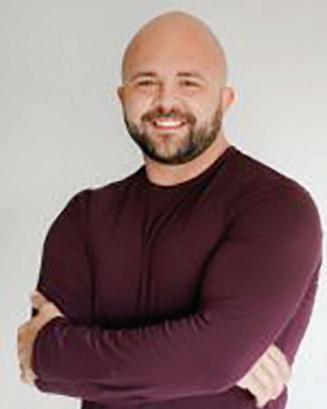
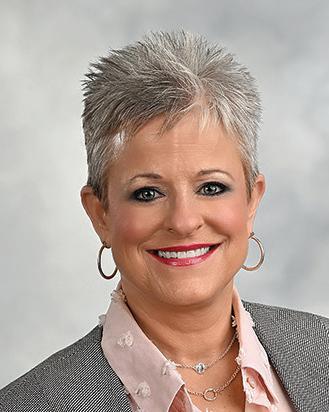

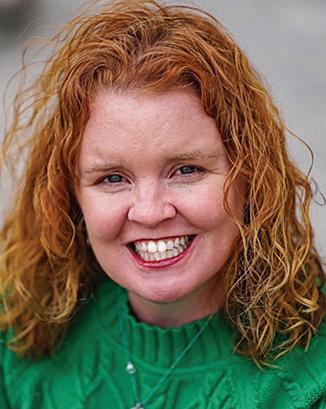
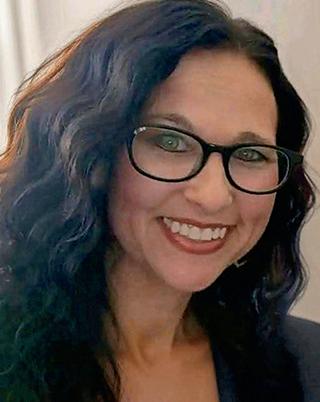

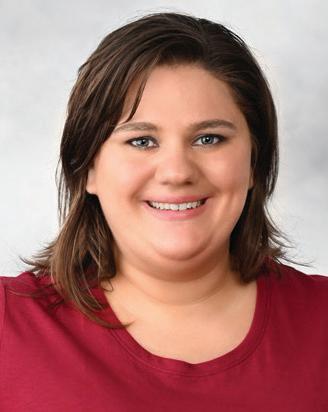



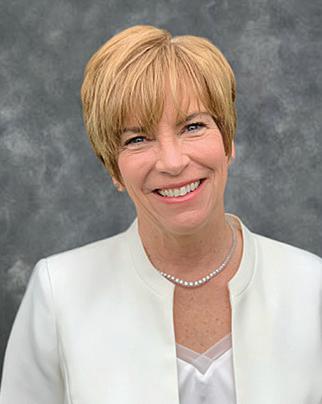
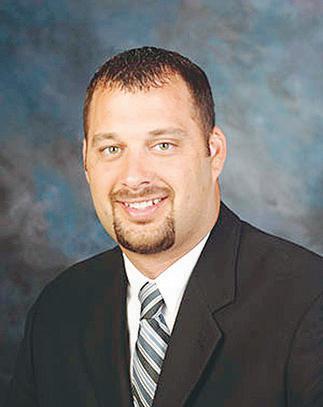
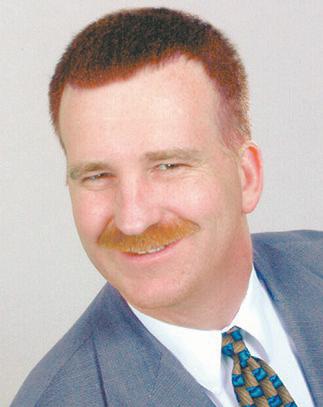



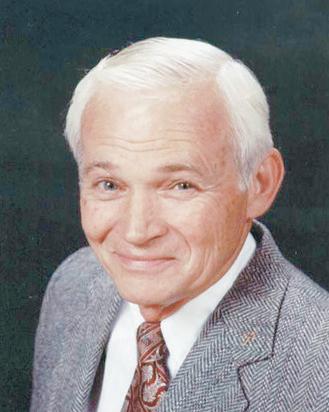
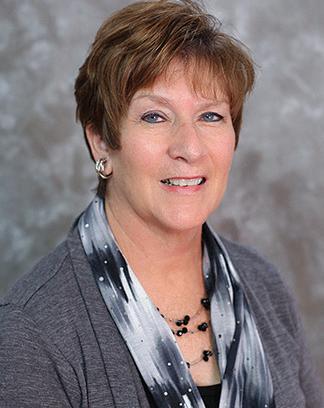







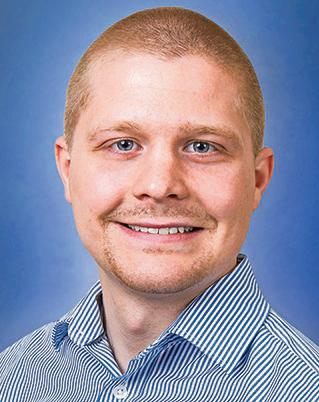
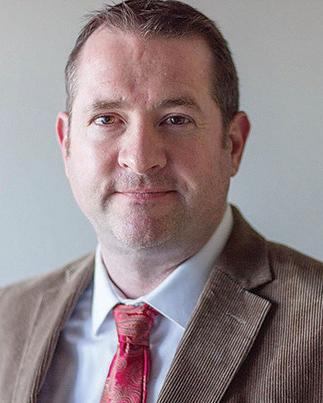





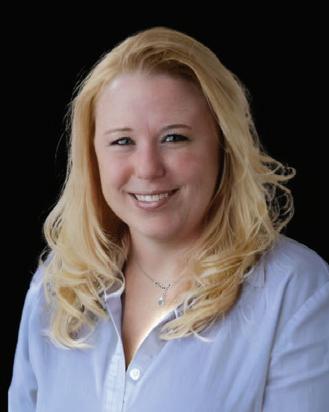


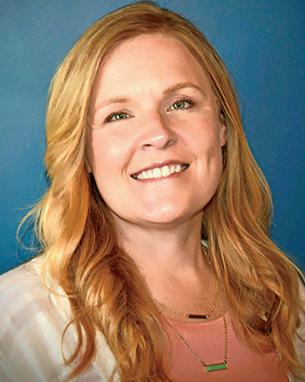
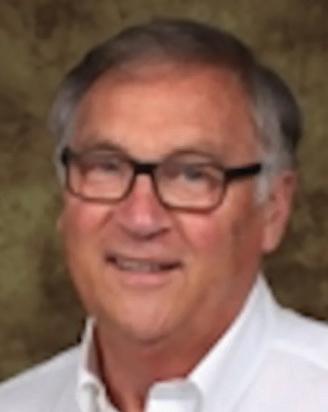



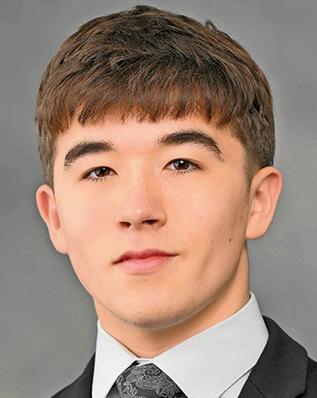


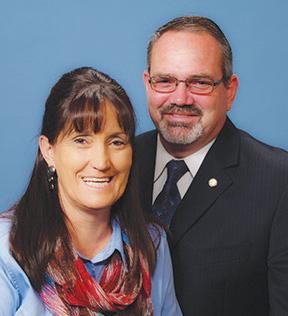

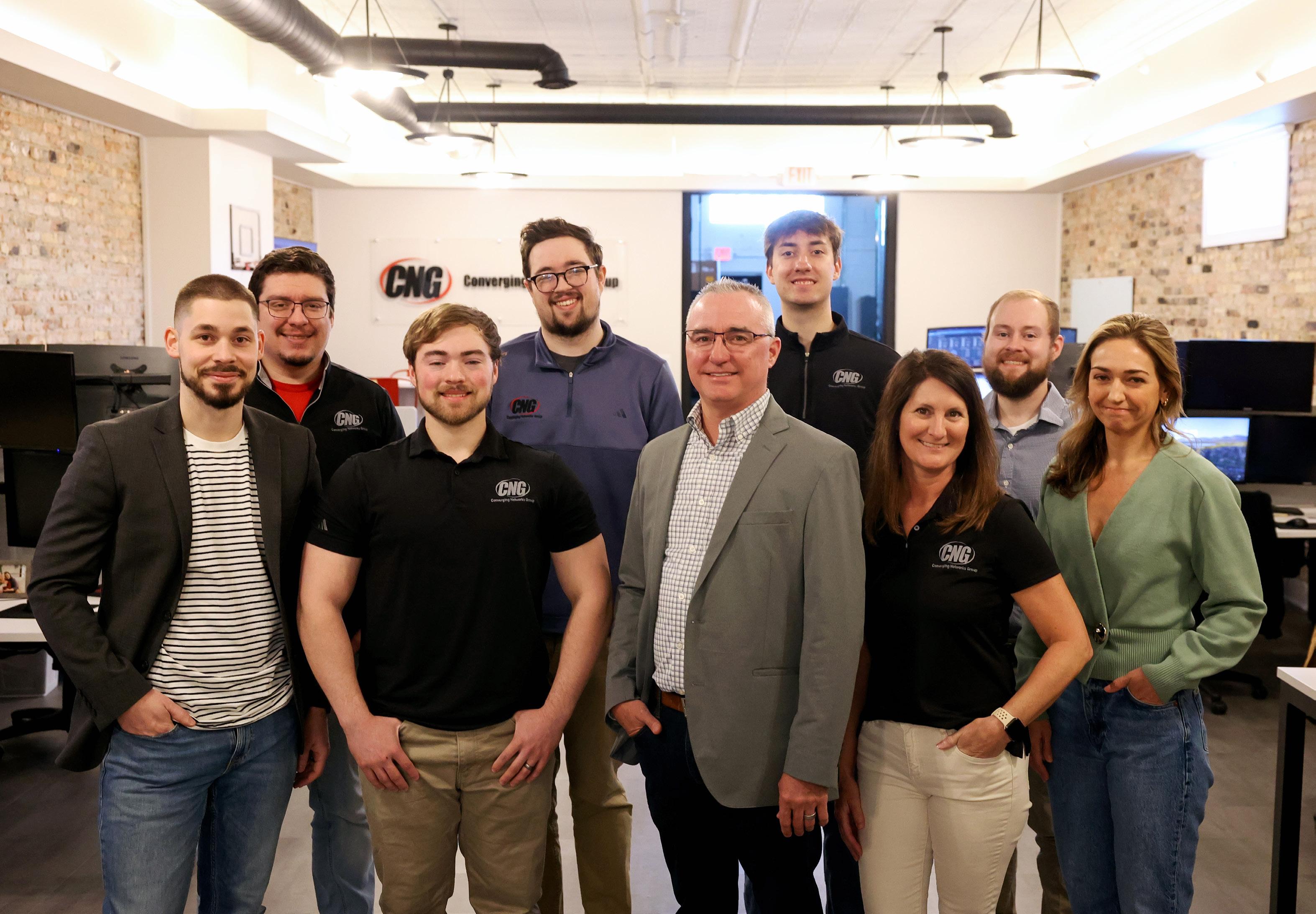
By DAVE FIDLIN Shaw Local News Network correspondent
Keeping pace with the rapid-fire changes in technology requires swift pivots. The family-run Converging Networks Group has indeed modified its operations plans since the IT company’s founding in 2003.
Several hallmarks within the business have endured over the past 22 years, including an unwavering customer-first mantra that is interwoven into the fabric of Kankakee.
“We’re very loyal to the Kankakee area,” said Brad Kuntz, founder and vice president of operations with CNG. “We like the presence of downtown Kankakee and being a part of the rejuvenation that’s been happening down here.”
Most of CNG’s staff roster – consisting of more than a dozen employees – lives in the immediate Kankakee area. That enhances the people-first mantra at a time when clients might require immediate service to troubleshoot a problem.
“Having local people do work for a local business means something,” Kuntz said. “We all have a lot of pride in that. We’re all invested in the community. It’s all about that personal touch. We care, and our customers aren’t numbers. They’re people, with problems, needs and wants, and we try to take care of them and keep things moving along for everybody.”
Kuntz’s father, Jerry Kuntz, is the founder of CNG. Brad came into the fold as well at a serendipitous time.
“My dad always wanted to own a business, so he retired from AT&T Lucent Technologies and started CNG,” Kuntz said as he reflects on the pieces of the puzzle that came together to form CNG.




At the same time, Kuntz landed a career aspiration of being a pilot. He was a new graduate in the aviation industry shortly after 9/11, at a time when there was limited demand for professionals in such a challenged sector.
While many of CNG’s core tenets have remained in place – including the family-run, local atmosphere – the business’s menu of services has evolved tenfold over the past two decades.
Despite its small size, Kuntz said CNG has been an innovative, nimble pioneer in its space and has a disparate client roster of small, medium and large businesses.
“We started off selling business phone systems,” Kuntz said. “Quickly thereafter, Voice over [Internet Protocol] started to become a thing, so we did a lot of data networking, mainly because the data networking people weren’t really good about making voice work over the network, so we




figured it out on our own.”
Voice over IP is commonplace in workplace settings today, but CNG made a name for itself as the technology was rolling out across the country and became noted as a substitute for traditional phone lines with higher-quality digital signals instead of traditional analog ones.
“We were one of the first innovators of Voice over IP,” Kuntz said. “We definitely were the first one in Kankakee County.”
Speaking to further pivots that have become the company’s core bread and butter in more recent years, Kuntz said, “We got into wireless because people wanted phones on wireless networks, across campuses, schools and hospitals.”
Cybersecurity – an issue that seemingly crops up in news headlines with growing frequency – also has been a growing part of CNG’s business.
“We do a lot of help desk and cybersecu-


rity services,” Kuntz said. “We work very closely with our vendors and developing the things that make our job easier.”
Kuntz said CNG’s staff members also stay on top of the latest industry trends and requirements to help the company’s clients with their own specific needs.
“Compliance is a big buzzword in our industry,” Kuntz said. “The cyber insurance requirements are changing. It’s getting harder and harder to qualify for cyber insurance. We help customers maintain the minimum and build on and exceed that with a cybersecurity plan that helps them sleep better at night and helps us sleep better at night.”
Currently, CNG employs 16 people. Most of the company’s clients are in the Kankakee area, though the company has Chicago-based clients for its phone support options.
“We’ve ebbed and flowed over the years, in terms of the number of people on staff, but we’re the strongest we’ve ever been,” Kuntz said.
For more information, visit consultcng. com.



























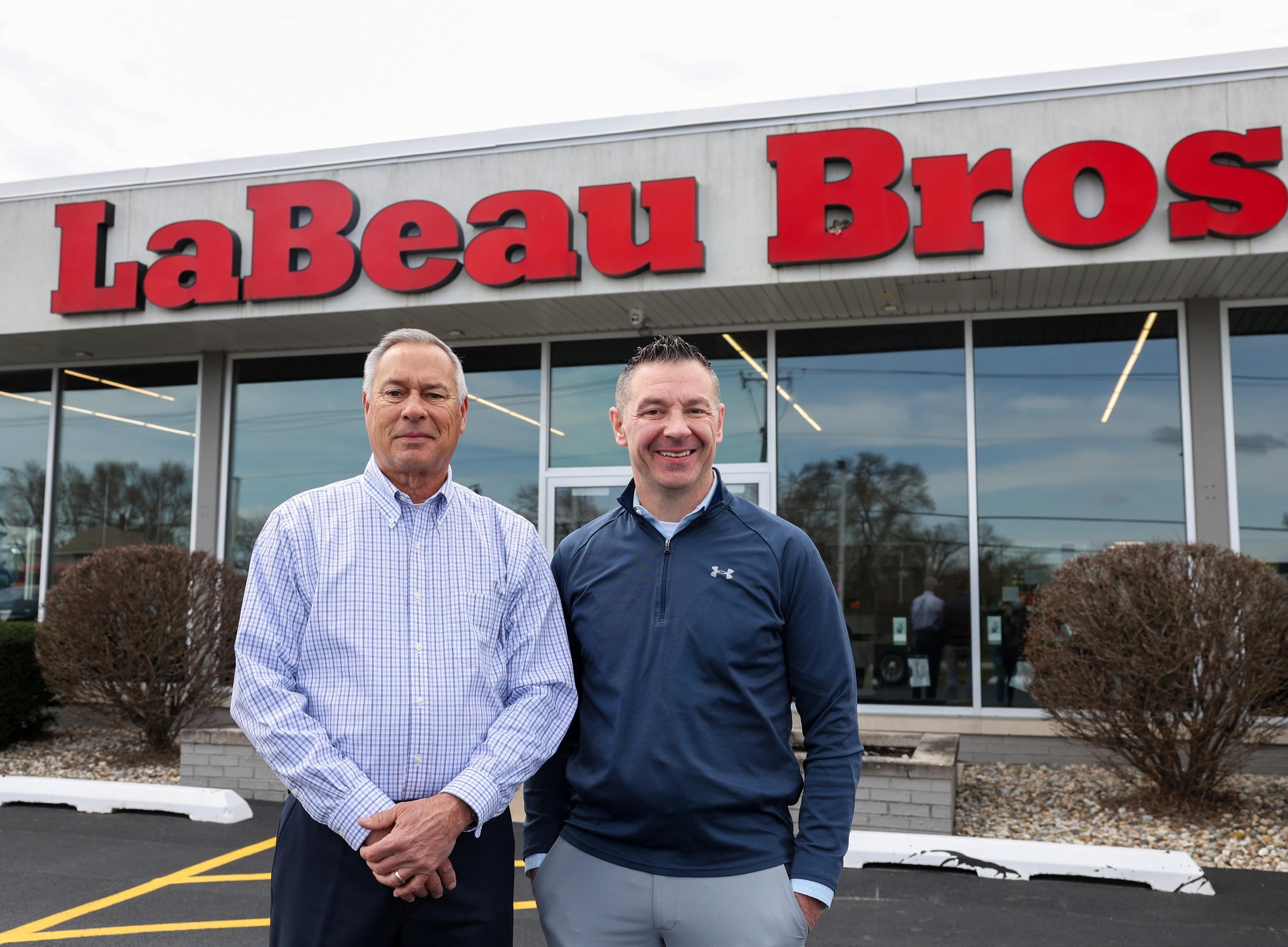
By DAVE FIDLIN
Shaw Local News Network correspondent
While there has been monumental growth within the company, staff at LaBeau Bros. maintain the same core philosophy that was its foundation when the doors first opened in 1941.
The licensed Peterbilt and Volvo dealership has been servicing generations of family members’ trucks with an unrelenting focus on service, attention to detail and getting to know customers by name.
That old-fashioned sense of dedication has given the Kankakee shop validation over the years, as evidenced by recent recognition from Peterbilt. LaBeau Bros. was among eight of Peterbilt’s 298 licensed operators to receive a Best-in-Class award this year.
“It really is a pretty big deal for us to get that,” said Rick Ravens, who has been the company’s president for the past 30 years.
“There are numerous things that they measure you on. They have multiple measurements in every department and how you handle A to Z, going all the way down the list. It’s quite a feat to be fortunate enough to win that award.”
Paul Zens, general manager of LaBeau Bros., said the recognition was gratifying, particularly in light of some of the company’s competitors.
“Being a small, single-location store, I think it’s very rare that somebody in our shoes would receive an award like that,” Zens said. “It’s one of those awards that doesn’t just look at total sales or total revenue – it takes the whole spectrum of the
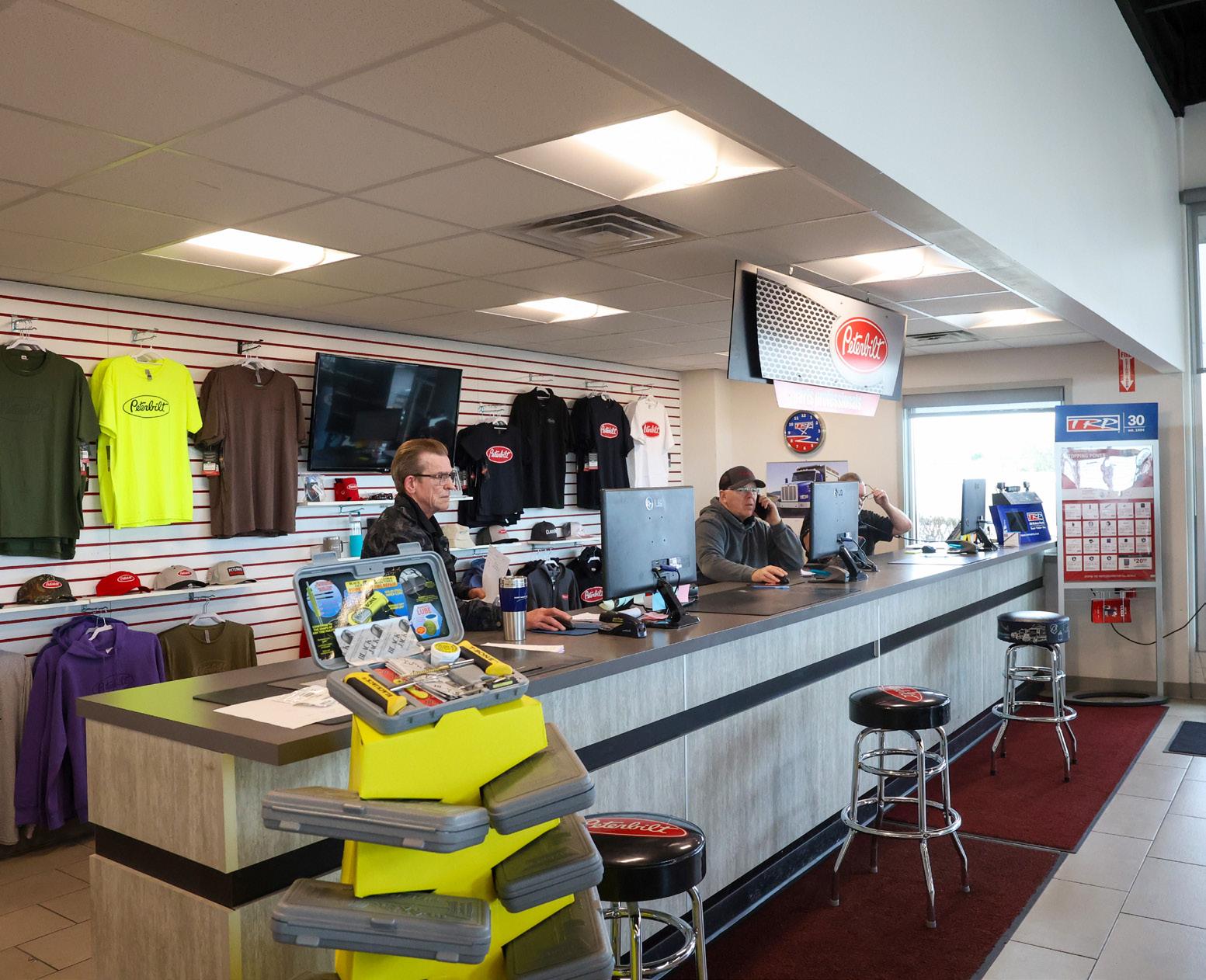
business and analyzes it from every aspect.
They don’t hand those out like candy at a parade, so we were pretty proud of that achievement.”
LaBeau Bros. has maintained a Kankakee presence since its beginnings as a company. For much of its existence, LaBeau Bros. operated on a 1.5-acre property on Harrison Avenue. The company made a seismic and strategic shift seven years ago by relocating to a more visible storefront at 2400 E. Court St.
“It was an existing building, and we did a complete renovation, inside and out, and more than doubled our building size,” Ravens said. “We’re sitting on 5 acres now,
Hove Nissan carries an impressive selection of new and used cars, crossovers and SUVs in Bourbonnais.
Our sales staff are here to help you find your new car!
just off the interstate. That’s been a tremendous help to us.”
While the move from its longtime setting was a leap of faith, it has paid dividends.
“In the last seven years, our business increased substantially,” Ravens said. “We’ve been able to add 15 employees to the payroll during that timeframe.”
When asked what he attributes to the company’s longtime success, Ravens boiled much of it down to grit, determination and the golden rule of treating others as you want to be treated.
“You’ve got to do the right things as a business,” Ravens said. “You’ve got to be fair, you’ve got to be honest, you’ve got to




take care of your customers, you’ve got to take care of your employees. If you can do those things, your chances of succeeding are pretty good.”
Zens said the loyalty LaBeau Bros. has demonstrated over the years has returned tenfold for the business’s bottom line.
“A lot of our customers – they came through the door and bought their very first truck,” Zens said, pointing out some of the company’s customers started with one truck and now have fleets of over 100 trucks.
“Having that relationship for 30 or 40 years
… it’s passed down generationally.”
From Zens’ vantage point, LaBeau Bros.’ position in the truck dealership arena might have a downside in terms of scale. But there are numerous upsides as well.












From page 5
“We are a pretty small dealer, in the grand scheme of things,” Zens said. “If you look at it nationwide, most of our competitors are big conglomerates with multiple stores. We’re a one-store dealership, which has its disadvantages to some degree. But it also gives us an advantage because any customer can come in and speak to Rick or myself.”
The company has also made tweaks and pivots as necessary. Case in point: At the height of the pandemic, Ravens and Zens reached out to local high schools and the nearby community college to gauge students’ interest in diesel programs, due to a workforce shortage within the shop.
“Within two years of us even bringing this subject up, there was a diesel program started at the local community college,” Zens said. “We fostered that relationship between the community college and the high school level, and the community really helped spur that development for us.”
While Ravens and Zens do much of the heavy lifting in LaBeau Bros.’ current operations, they are quick to point out the team
atmosphere that has been a bedrock of the company from the beginning.
“It’s not me, it’s not Paul – it’s our whole dealership here,” Ravens said. “Every employee plays a part in that. It takes a complete team effort to even have a chance of doing that. We’re fortunate. We have a lot of great people here.” For more information, visit labeautrucks.com.
for
careers. “This investment is not just about education—it’s about building a
of
that
said Dr. Michael Boyd, KCC president. “The future of work is evolving, and we are making sure students are prepared. By eliminating financial obstacles and strengthening career training, we’re creating pathways for student success and economic growth.”
Opportunities for Free Tuition
KCC is accepting applications for assistance with tuition, fees, books and supplies. Qualified students will be able to complete their programs for free, thanks to available grant and scholarship funding. The money does not have to be repaid. Many of the grants are not income-based.
“Financial concerns can make college seem out of reach,” said Meredith Purcell, Vice President for Student Affairs. “We want students to know that there are resources available to help. Our goal is to ensure every eligible student gets the support they need to succeed.”
“People often ask, ‘What’s the catch?’” said Purcell. “The process is simple, students complete an initial form and apply for financial aid. Even if they don’t qualify for financial aid, they’re still considered for grant funding.”
KCC’s financial aid team is available to help students navigate the process.
Current and prospective students can learn more at https://skills.kcc.edu. The Free Application for Federal Student Aid can be found at https://studentaid.gov.
Students can also apply for KCC Foundation scholarships at www.kcc.edu/ scholarships.
Once students are enrolled, wraparound supports extend beyond the classroom. Career advisors and student success coaches help them stay on track through resources like tutoring, instructional technology, behavioral health, and emergency funding.
Student Success Story: Reigan Muniz Reigan Muniz began her college career at Southern Illinois University at Edwardsville. After six semesters, she decided to choose a different career path. In Fall 2024, she enrolled in KCC’s Electrical Engineering Technology Program and found it to be an exciting career fit. In January 2025, even though she was already enrolled, Muniz learned about the new funding opportunities. She applied, submitted the necessary documentation, and by February 2025, learned that all her tuition, books and educational costs for the semester would be covered.
“This funding lifted a huge financial burden off my shoulders,” said Muniz. “It’s allowing me to focus on my education and career without the stress of student debt.”
With two semesters remaining, Muniz plans to reapply for the funding each term. “Knowing there’s financial support available makes me confident about my future,” she said. “The skills I’m gaining at KCC are setting me up for a great career.”
Expanding Training & Facilities
In addition to funding tuition and college costs, KCC is using grant funds to make significant improvements and additions to its workforce training programs, including:
Upgrading the Automotive Technology Lab to include electric vehicle training.
Adding a Supervisory Control and Data Acquisition (SCADA) lab to the Electrical Technology Program.
Expanding hands-on learning opportunities to the Programmable Logic Controller (PLC) Lab.
Renovating the auditorium and creating a dedicated corporate training space.
The projects should be completed before December 2025.

“KCC is fortunate to have these funding opportunities that remove financial barriers for students and strengthen our programs,” said Boyd. “These investments will have a lasting impact on our students, our community and the regional economy.”
Current Funding Sources for KCC:
RevUp Grant ($475,000) – Funding for student retention, professional development for faculty, and EV-related equipment for Automotive Technology, Electrical Engineering Technology, and Manufacturing.
FastTrack Grant ($4.5 million) – Providing tuition, fees and other direct student support related to workforce training and employment placement in the electric vehicle battery manufacturing industry.
Job Training and Economic Development Program ($391,690) – Providing tuition, fees and other direct student support for recruitment, career planning, job training, wrap-around student support, and employment placement.
Manufacturing Training Academy Grant ($12 million) – Upgrading training facilities and corporate education, automation labs, battery labs, and automotive technology labs.
Workforce Innovation & Opportunity Act (WIOA) – Funding tuition, certifications, and related expenses for healthcare, technology, and technical education training for high-demand careers.


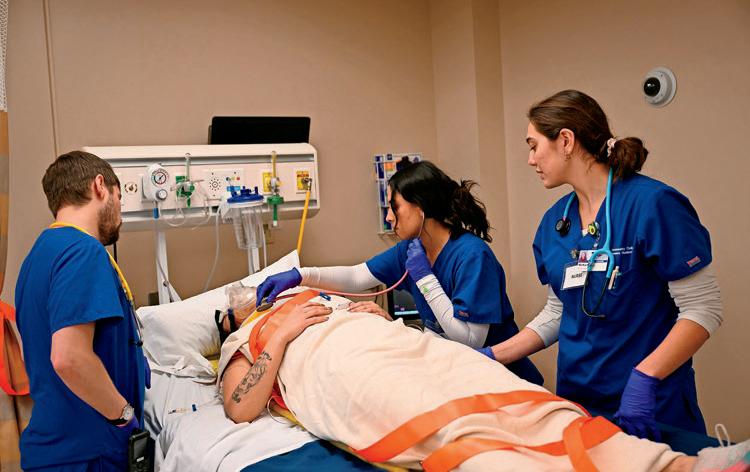

Free Application for Federal Student Aid – Determines eligibility for federal financial aid, such as grants, loans, and work-study programs, to help pay for college. KCC Scholarships – More than


By LEE PROVOST lprovost@shawmedia.com
PEMBROKE – Jose Garfias slips on his apron. The clock shows it is only a handful of minutes past the 9 a.m. hour.
But for the 57-year-old Pembroke Township resident, he’s thinking lunch. Lots of lunch.
While the ground did not quake, nor did a star fall from the sky, a seismic shift has taken place within the long-impoverished community of Pembroke Township.
The shift might not have registered as a monumental occasion for those living in almost any other community, but for this area, the move does have meaning.
Garfias and his wife, Eva, late in 2024 opened Eva’s Pizza at 13161 E. Central Ave., almost directly across the street from the Pembroke Public Library and about one mile from the Lorenzo Smith Grade School property.
The change is not worthy of a mention in “Ripley’s Believe It or Not,” but it is indeed a most unusual situation.
“We are used to our people leaving town for something like this,” said Hopkins Park Mayor Mark Hodge. “Now people are coming here. People are coming to Pembroke for this product. … It’s been a long time coming to reverse the tide.”
While Hodge cannot be certain, he is confident enough to state this is more than likely the first pizza restaurant to have called Pembroke Township home.
At this point, the tide is likely more of a ripple, but the mayor’s words still are clear. Why can’t Hopkins Park and Pembroke have things that other communities take for granted?
Jose and Eva – no fear
Jose and Eva, 61, moved to Pembroke in August 2023. They relocated from Chicago. Their daughter, Kimberly Garfias, a mother of

four and the five-year Hopkins Park village clerk, needed someone to care for her youngest while she was at work. Her parents took on the task, but there was far more they could do than just tending to a granddaughter. Eva had an idea.
Tryings to capture Jose’s 16 years as a Chicago northside Giordano’s Pizza employee, much of it as a cook, the couple took a chance on making pizzas from their home
kitchen. It turned out to be an instant success.
Drawing on their three years of experience running their own Italian restaurant in Chicago, they leaned into what they knew best. They began baking and taking orders for pizzas in February 2024. They were selling at a brisk pace, between 15 and 20 a day.
“They had no fear of being in Pembroke and selling pizzas,” Kimberly said. “You don’t know until you do it.”
With the Kankakee County Health Department gaining notice of their home-based business, the need became apparent that if pizzas were to be their future, they needed a location to make them.
Kimberly asked her boss, Mayor Hodge, if there was a location that would work. He mentioned the East Center Street site. He happens to be its owner.
The unit was small, he noted, about 250 square feet, but all that was needed was enough room for a

kitchen and a counter. Restaurant seating was not necessary.
The location would offer carry-out and delivery.
Retirement not in their future
With the aid of their son-in-law, Faustino Zamora Jr., Kimberly’s husband, a construction contractor, and about $50,000, they transformed the space into a modern kitchen.
See PIZZA, page 12
Kankakee County is a shining example of how a diverse workforce and commitment to innovation can drive economic growth and foster community well-being. With more than 44,000 employees across industries such as manufacturing, healthcare, government, education, retail trade, hotel and food service, and administrative services, the region’s economic landscape is dynamic.
Over the past few years, Kankakee County has reached several important milestones that highlight its ongoing growth and resilience. One of the most significant is the $2.5 billion in capital investments over a five-year period.
This substantial investment reflects the confidence that businesses have in the region’s potential and is a clear indicator of the county’s growing importance in the broader economic landscape.
At the core of Kankakee County’s economy lies manufacturing. The county boasts 93% more manufacturing jobs than the national average, positioning it as a leader in this sector. With $8.8 billion exported from the county over the past five years, Kankakee County’s manufacturing base is not only vital to local employment but also plays an essential role in global supply chains. The sector spans a wide array of industries, including consumer goods, pharmaceuticals, chemicals, and plastics, contributing to both economic growth and global connectivity.
Healthcare also plays a significant role in the county’s economy.
Leading facilities such as Riverside Healthcare and Saint Mary’s lead the market, but the industry as a whole employs more than 7,000 people, that’s 29 percent above the national average. These well-paid positions improve the quality of life for local residents, generate jobs and stimulate auxiliary services that further support economic vitality.
As Kankakee County’s economy grows, so does the demand for housing.
With fewer than 100 new homes built annually over the past decade, the local housing market has become tight, driving up prices. To meet this demand and support future growth, the Economic Alliance of Kankakee County recently commissioned a housing market analysis. The study shows that over the next five years, the county could absorb more than 230 new homes and 200 rental units annually. To encourage development, the Alliance has worked with local municipalities to expand Enterprise Zone benefits to include residential projects, helping to meet the rising demand for housing.
“The county’s resilience, creativity, and determination have allowed it to emerge as a vibrant, world-class community,” said Timothy Nugent, President and CEO of the Economic Alliance of Kankakee County. “The diversity of industries that call Kankakee County home continues to foster an environment of opportunity and collaboration. As a result, the county is increasingly recognized as a place that employers want to relocate to and call home.”
The Economic Alliance of Kankakee County plays a crucial role in guiding this growth. As a public/private partnership, it works to retain industries in the region and attract new businesses to Kankakee County. By continuing to focus on business retention, recruitment, and strategic investment, the Alliance ensures that Kankakee County remains a thriving economic hub well into the future.
For more information about the region’s economic growth or opportunities in Kankakee County, visit kankakeecountyed.org or call 815-935-1177.


By DAVE FIDLIN
Shaw Local News Network correspondent
When Jonathan Keigher joined Urban Farmer in 2018, he was employee No. 45. Within a very short time, however, he went from being a rookie on the staff roster to a veteran.
“In about six months, we grew the business to about 500 employees,” said Keigher, who is Urban Farmer’s human resources manager. “It was a huge expansion, and we landed some really great customers, with some great contracts.”
Urban Farmer’s workforce expansion has netted awards and accolades. The Illinois Chamber of Commerce, for example, awarded the company with its 11th annual Economic Development in Illinois Award in 2019.
Amid the company’s meteoric rise, Urban Farmer has stayed close to its core vision. As stated on the company’s website, it is “to make better-for-you foods the everyday choice.”
Urban Farmer, which was founded in Manteno in 2013, is a co-manufacturing partner with leading consumer package companies, food service providers and retailers in need of stocking their shelves with quality frozen foods.
Keigher, who routinely gives tours of Urban Farmer’s facility, said visitors are oftentimes pleasantly surprised when they discover what takes place behind the scenes.
“I think it’s the coolest thing to see the connection,” Keigher said. “When somebody walks through our manufacturing process, they see very familiar labels that they go and buy at the grocery store. We produce some of the best brands out there, and it’s made right here, in the community’s backyard.”
While food is the core component of

SPONSORED BY
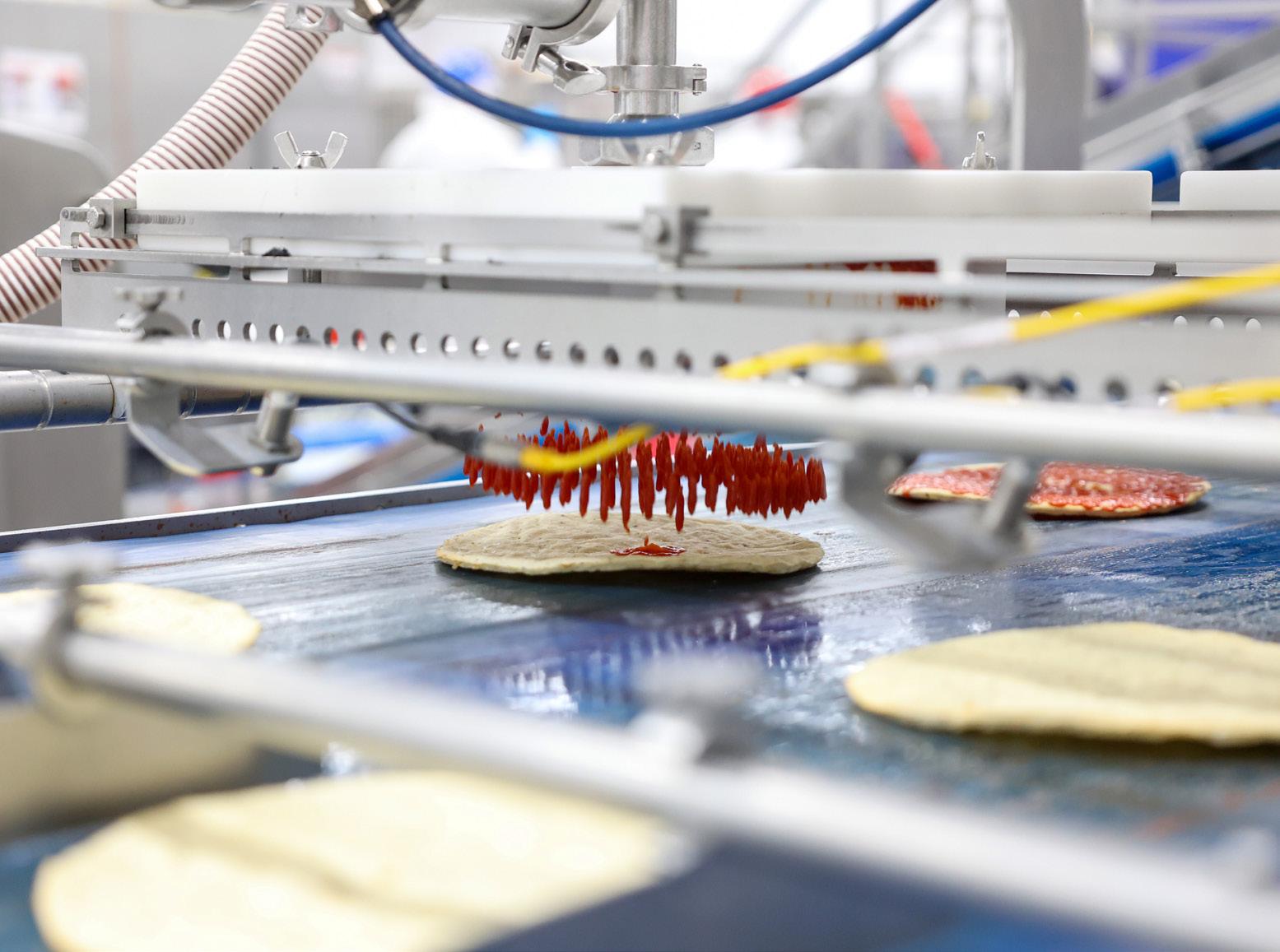
Urban Farmer’s operations, Keigher said the people employed within the company across scores of different jobs are at the heart of the company’s successes.
“Our people really are our proprietary information,” Keigher said. “They drive us home. They’re the boots on the ground, and they do a fantastic job for us. Our people always come first. We foster a safe, respectful and inclusive workplace.”
Keigher said Urban Farmer’s consistent ranking in industry standards, often with “excellent” scores, in terms of engagement results, reflects the company’s commitment and dedication to its workforce.
“We’re investing in our growth, with training, development and opportunities,” he said.
Executives view the high-caliber workforce across various positions within the company as the connective tissue to the successes Urban Farmer has achieved to date.
See URBAN FARMER, page 9
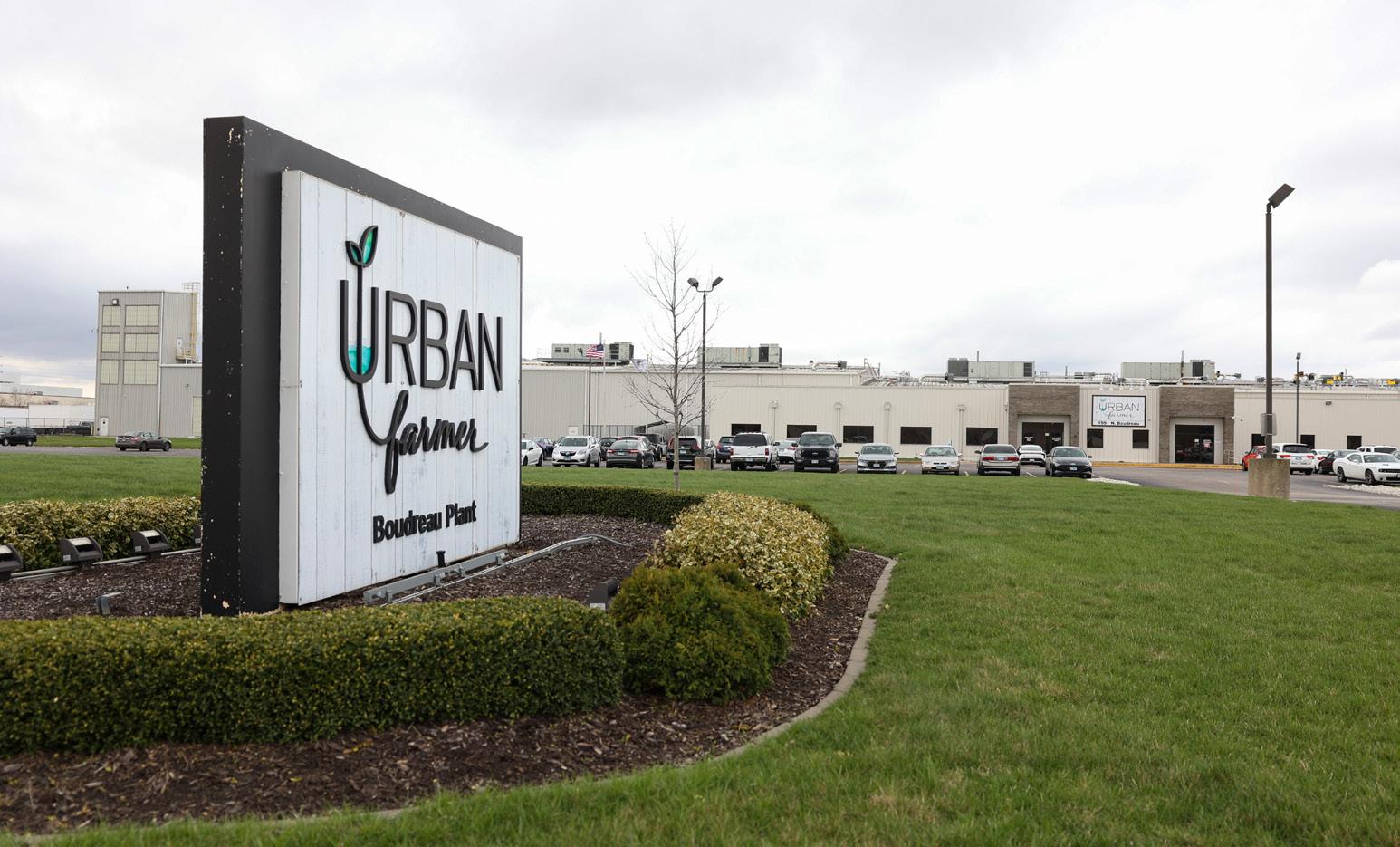



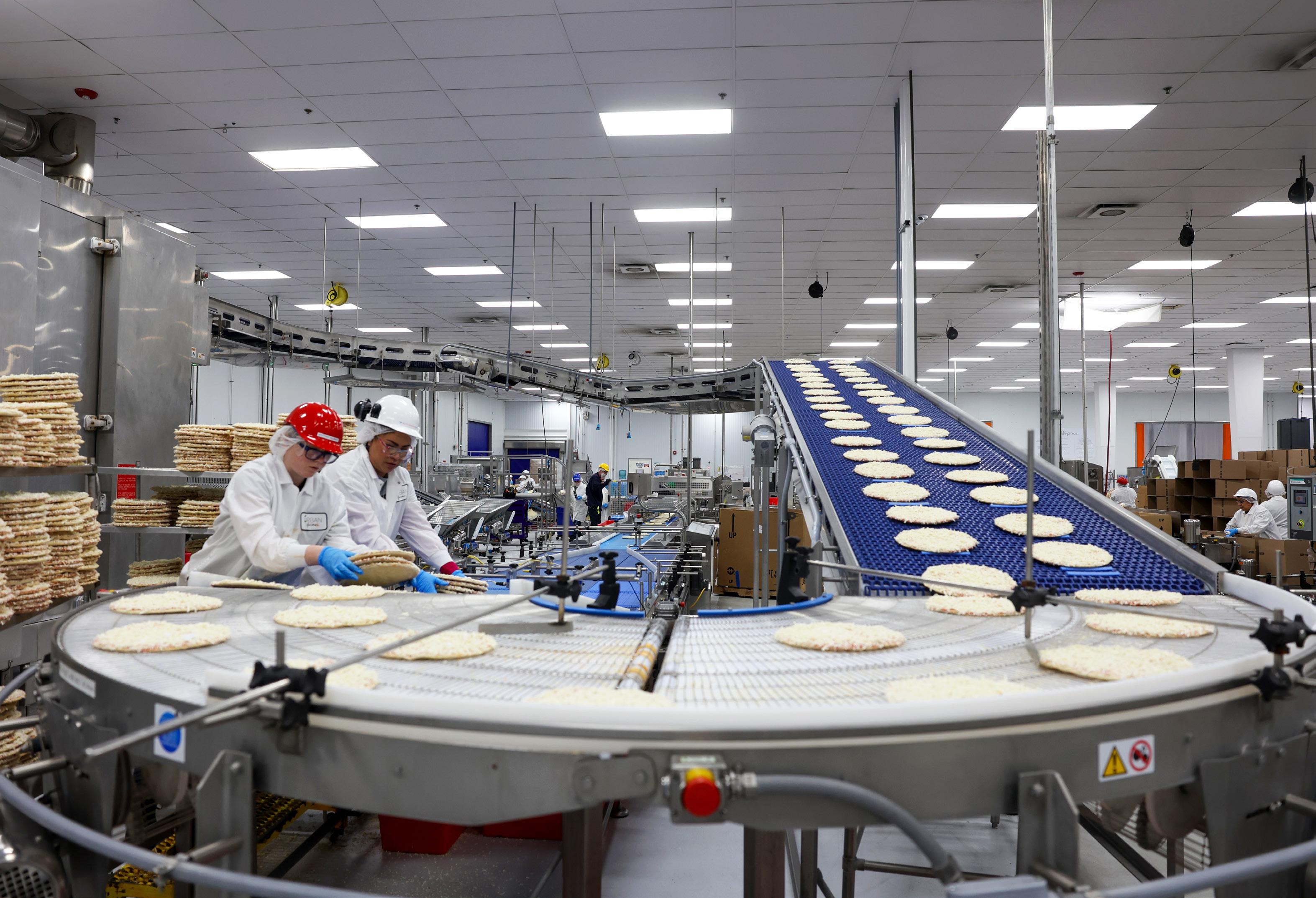

“We have an innovation team that’s like no other,” Keigher said. “They’re constantly studying the markets. We have some ingredient professionals here that really know every aspect, in and out, of each ingredient and how it will process on the production line, mixing it in with other ingredients.”
Taking a long view of the company culture, Keigher said, “I think our environment is really what sets us apart from others. We strive to be the best at what we do. We want to lead
this category.”
While Urban Farmer strives to invest in its workforce, Keigher said the company also has a hard-line stance when it comes to operational matters and quality control.
“Safety, for us, is always non-negotiable,” Keigher said. “We always want employees to practice safe behaviors and have a healthy working environment. That’s No. 1 on our list. We also want to produce good, safe, quality food for everybody.”
While there has been celebration within Urban Farmer of the successes it has achieved, Keigher said company leaders are not resting on their laurels.
“As we continue to grow Urban Farmer, obviously the markets change,” Keigher said. “Depending on the season, depending on the latest trends, food obviously trends differently than most other industries.”
The fluctuations in play can, at times, mean pivots and adjustments along the way.
“It’s really about staying on top of the market,” Keigher said. “We really focus on continuous improvement, with new product development, talking to our partners and talking to our customers.”
For more information, visit urbanfarmer.net.



and we do so by continuing to advance our sustainability commitment. We want to do our part to ensure a bright future for many generations to come.
Proudly Serving a wide range of global industries’ unique needs, from the products that keep the world moving to those that add beauty.


By DAVE FIDLIN Shaw Local News Network correspondent
At the height of the pandemic, Bri Haug found herself at a crossroads. With life at a standstill, she took stock of her personal and professional goals and ambitions and decided to take a leap of faith.
Since its founding in 2021, Haug’s business, Electric Lady Lounge, has become a Kankakee County hot spot for people looking to add a little flair. Tattooing is the bread and butter of the business, but Haug said there are many aspects behind the service-minded storefront that have a connective tissue.
“The goal is to bring a little color and togetherness back into Kankakee County,” Haug said.
Haug, who has a background as a tattoo artist, said the pandemic-induced pause prompted her to dig deeper into her pursuit of opening a shop in an area she has long called home.
“When the pandemic hit, we had about three months off,” Haug said, reflecting on the trajectory of her business. “It gives you a lot of perspective with what you want to do with your time. I had been tattooing for a couple of years. I was grateful for my time in those shops, but it wasn’t my own investment, so I had decided to go off on my own.”
Electric Lady Lounge initially set up shop in the Majestic Building in Kankakee. But Haug said the strong community response that resulted in rapid business growth prompted a relocation. Today, the shop operates out of the former DMV building at 1111 Blatt Blvd. in Bradley.
From the get-go, Haug said attention to detail and aesthetics were at the heart of the

business, aiming to develop an inviting space that fostered creativity.
“This is not your typical rough and tough tattoo shop,” Haug said. Speaking to the earliest days in business, she said, “People wanted to come in and see what was happening. We would do events and had merchandise that was limited and exclusive. It grew into this bigger thing. We did collabs locally with other small businesses and really got to put our names out there.”
Haug said there is great purpose and intention behind the attention to detail throughout the shop.
“Coming in to get any of these services requires a lot of vulnerability,” Haug said.
“We do our best to ensure everyone is considered. We want to make connections by

approaching all of our work with integrity and mindfulness.”
Currently, Electric Lady Lounge has a team of six, with four tattoo artists (including Haug), a paramedical cosmetician and a piercer.
“We’re always growing, which has been really exciting,” Haug said. “I would love to keep offering new and fun experiences. I’m always striving to bring our next ‘wow’ moment or introduce something that is going to set us apart.”
Beyond tattoo services, Haug said her goal is to cultivate a welcoming community space – something reflected in events like the shop’s annual Pride celebration in support of the LGBTQ community.
“We’re really active in the community,”


BUSINESS OF THE YEAR SPONSORED BY

Haug said, “We like to do a lot of fun events. We want to be known as a safe space. We’re very bright, colorful and eclectic.”
Electric Lady Lounge has also been a space that amplifies art in all of its forms. Examples of the diverse artistic expressions include a Chicago muralist’s depiction of an urban, fun vibe and an artist who designed shirts supporting the local LGBTQ network.
“I feel like I work with people who have such integrity,” Haug said. “It’s just really cool to see that everybody, individually, has their own voice that they want to push out there.”
Collaboration, she said, is at the heart of everything related to Electric Lady Lounge, within the walls of the shop and beyond.
“I want to hear what everybody has to say, and if there’s an idea I can implement, especially if it means promoting our voice, that is important to me,” Haug said.
For more information, visit electricladytattoo.com.

By LEE PROVOST lprovost@shawmedia.com
BRADLEY – Faced perhaps with its most critical period since its incorporation, an economic development organization – independent of Bradley’s municipal government –was recently created.
The five-member board, led by its president, Jeff Downs, vice president of Johnson Downs Construction Co., of Kankakee, hired a director for the not-for-profit entity formed in late December.
The Bradley Economic Development Corp. is under the direction of Brian Pabst of Downers Grove. He became, in effect, the point person for economic development within the village.
Pabst, contracted on an hourly basis, earns $100 per hour, working 30 hours per week.
“There is such great potential here,” he said. “That’s why I’m interested.”
Describing himself as a “low-key guy,” Pabst’s duties will entail business attraction and retention.
“My focus will be what businesses may need to consider Bradley and what they may need to continue to be in Bradley,” he said. “I’m certainly looking forward to working here.”
Mayor Mike Watson described Pabst as an “open book.” He said Pabst has a history of
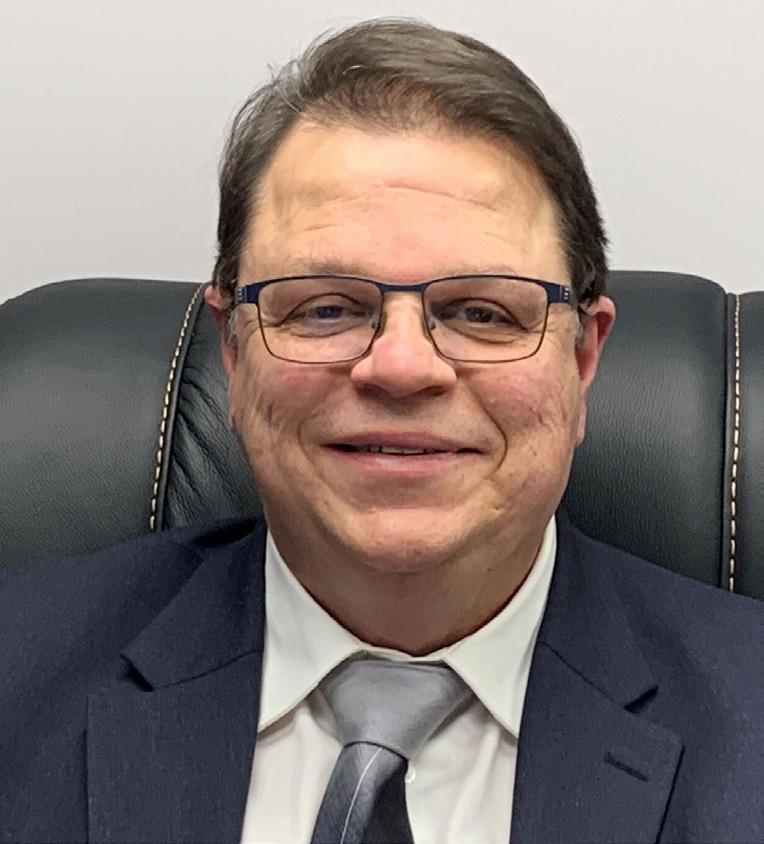
saying whatever is on his mind and won’t shy away from bringing forth unwelcome news.
“He won’t duck,” Watson said.
In motion
Although his new position doesn’t officially begin until Jan. 1, Pabst said he is already putting out feelers to various developers regarding what interest they might have within the village.
“It’s a matter of having contacts and knowing people,” he said.
Pabst said what Bradley is undertaking in terms of development can be considered nothing but huge.
“These will be the economic catalyst for the region,” he said. “… The mayor has set the stage for a transition for Bradley. We are trying to build a better village. The questions are ‘What do you want? What do we want the village to be?’ ”
With more than 40 years of experience in community and economic development, Pabst was the only candidate the organization considered.
His resume includes an extensive list of municipal development work, including tenures with Willowbrook, Berwyn, St. Charles and Downers Grove.
He not only works for the governmental body, but also spends time with the economic corporation that assists those communities.
He also had a three-year tenure as Downers Grove’s assistant village manager.
Development board
In addition to Downs, the five-member Bradley EDC board, which are unpaid positions, consists of:
• Pat Gilmore, vice president, principal at Deuschle Gilmore Insurance Agency
• Todd Gereaux, member, president of MG2A Engineering
• Dr. Sanjay Patel, member, owner of Comfort Inn and Holiday Inn Express in Bradley
• Jacob Carlile, member, owner/managing principal at Carlile Group in Manteno Economic development organizations are common entities. The Kankakee County region has a public-private organization known as the Economic Alliance of Kankakee County.
Led by Tim Nugent, alliance president and CEO, the organization has been in existence since 2007.
Regarding Bradley, the Bradley EDC will start with a financial contribution from the Bradley Village Board. The contribution will likely be in the $150,000 to $200,000 range.
The Bradley EDC will be annually funded through grant requests from the village and rental income from the recently purchased Northfield Square mall.
Pabst said he and the village finance director, Rob Romo, have known each other for more than 10 years.
Describing himself as semi-retired, Pabst said that when approached about this opportunity, it was simply too attractive to turn down. He said the opportunities that will likely be coming in Bradley’s direction are things he would like to help direct.
Pabst helps steer on-site management for the Bradley Sports Complex. He noted he would not be responsible for the location’s day-to-day operation.


“They were not ready to retire,” Kimberly said. “Eva said she wanted to sell pizza. They saw potential. Mom had the idea. Dad is the chef.”
They opened the restaurant on Nov. 2. The first day, they were swamped. They went through more product than they would have in a week. They were overwhelmed, but pleased. The reviews were overwhelmingly positive. After regrouping from that first day, business has remained strong. They are selling between 50 and 70 pizzas daily. Everything the couple sells, they make. Jose makes pizza dough daily. He starts the process at about 10 a.m. By about 11 a.m., opening time, the dough is ready.
He also has Italian beef cooking. He has gyro meat at the ready. Hamburgers also are a staple. Chicken wings, with an assortment of three sauces, have been well received.
Just as with almost every business, Eva’s has the point-of-sale system in place to process debit and credit card payments.
The one food the couple purchases is the desserts. They have a weekly delivery of cheesecakes and other baked desserts from Chicago Sweet Connection Bakery.
Open seven days a week, the couple logs long hours, up to 11 or 12 hours a day. They realize that to
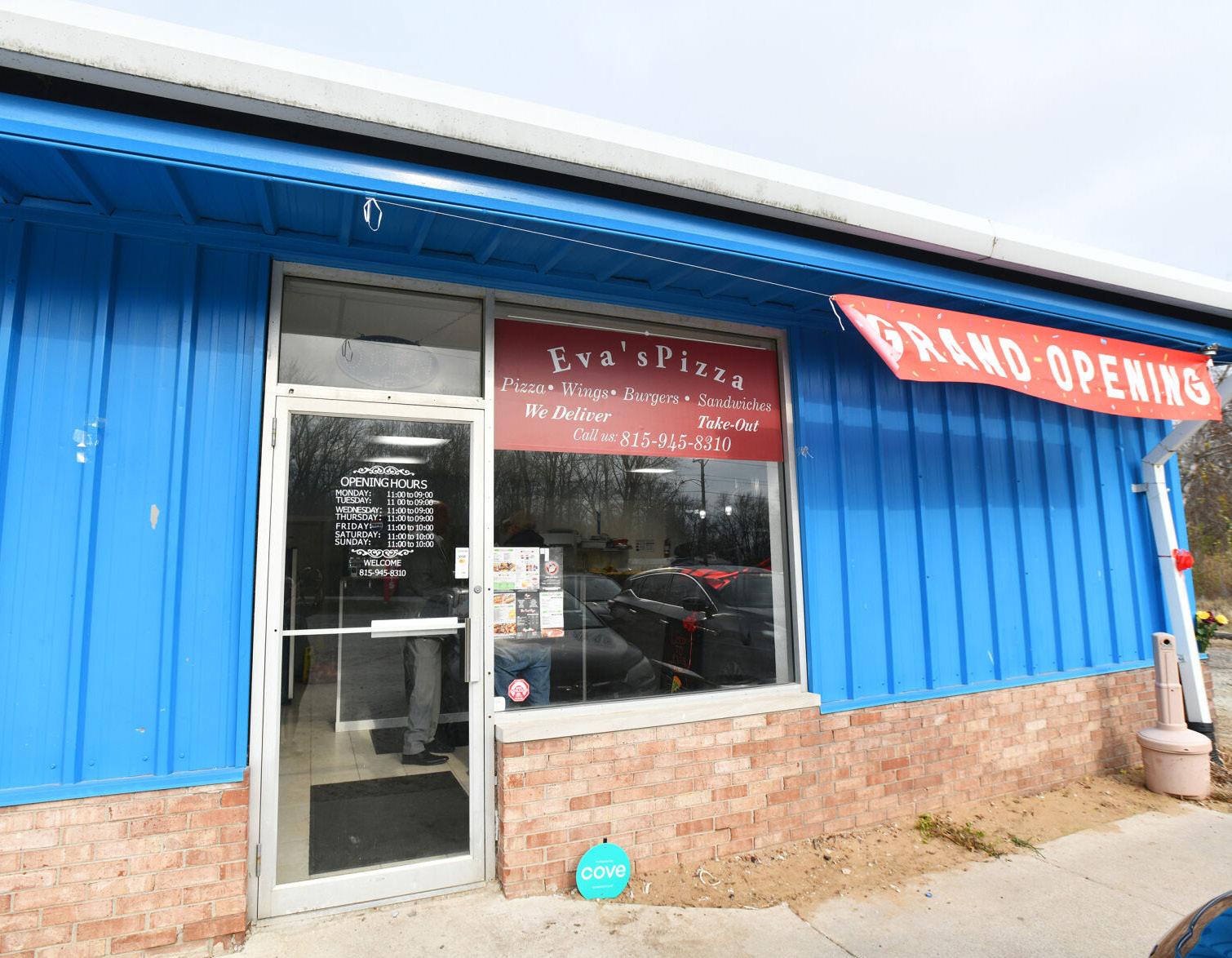
operate a successful business, the owners must be on hand, no matter how many hours are required.
“This is their retirement,” Kimberly said. “They don’t want to retire. This is what they enjoy.”
‘A beautiful thing’ Jackie Delgado, 26, of Pembroke
Township, takes the walk-in or phone orders. Jose and Eva speak English, but perhaps not quite well enough to operate the business.
“I’m not surprised it’s doing so well,” Jackie said. “People here just want the things people every-
where else have.”
In addition to Pembroke Township and Hopkins Park, the business has targeted St. Anne, Momence, Aroma Park and Sun River Terrace as its market.
The owners are quick to note that the business’s ovens are pow-
ered by the recent arrival of natural gas. Without natural gas service, Hodge said, this business would never have started. The supply of propane gas would simply have been too costly to make this feasible.
Asked about a husband and wife working side by side for so many hours every day, Eva only smiled.
She said that when at work, they are not married. Rather, she said, they are co-workers.
Hodge stopped in shortly after the restaurant opened.
He had an ear-to-ear grin. While the business has been open for only a short time, Hodge is confident it will survive because the food is great, and the prices are reasonable.
That combination, he said, is the key ingredient for success.
“It’s a beautiful thing,” Hodge said. “People want choice. This has been an ‘awe’ moment in Pembroke Township. And everybody wants pizza.”
Hodge said success brings success. Others will see that a business can be successful in eastern Kankakee County and will be willing to give this area a look.
For Jose and Eva, it is not about being a trendsetter. It’s about satisfying customers with a product they are proud to have their name attached to.
“The community is growing,” Eva said. “People are seeing the potential. This little restaurant is showing there is potential here.”




From injury prevention to recovery, our sports medicine experts help you heal faster, perform stronger, and stay at your best. Get personalized care to help you move better and live better.



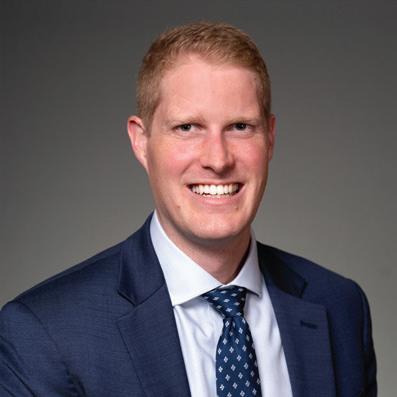





Thank you to all athletic trainers for your
By JAMES HENRY jhenry@shawmedia.com
DENVER – Uncertainty in both commodity prices and input prices is making farmers’ already tough job even more difficult.
“We’re definitely in a time of uncertainty and very, very much concerned about where commodity prices are. We’ve seen a decline of 30%-plus in commodity prices in the last year, while we’ve had an increase of 30% or more in input prices,” said J.R. Roesner to AgriNews in a one-on-one interview at the Commodity Classic in Denver.
“So, it’s making it very difficult for the family farmer to pencil out a profit within that to support his family, to support the rural community,” said Roesner, who farms with his brother, William, in southwest Indiana.
“We’ve definitely had trouble finding ways to reduce cost, finding the best market for our crops and trying to make all that work to where we can make a profit and support our family.” Special financing, including zero-interest deals, now being provided by seed companies and other agricultural businesses, offers some help.
See FARMERS, page 15
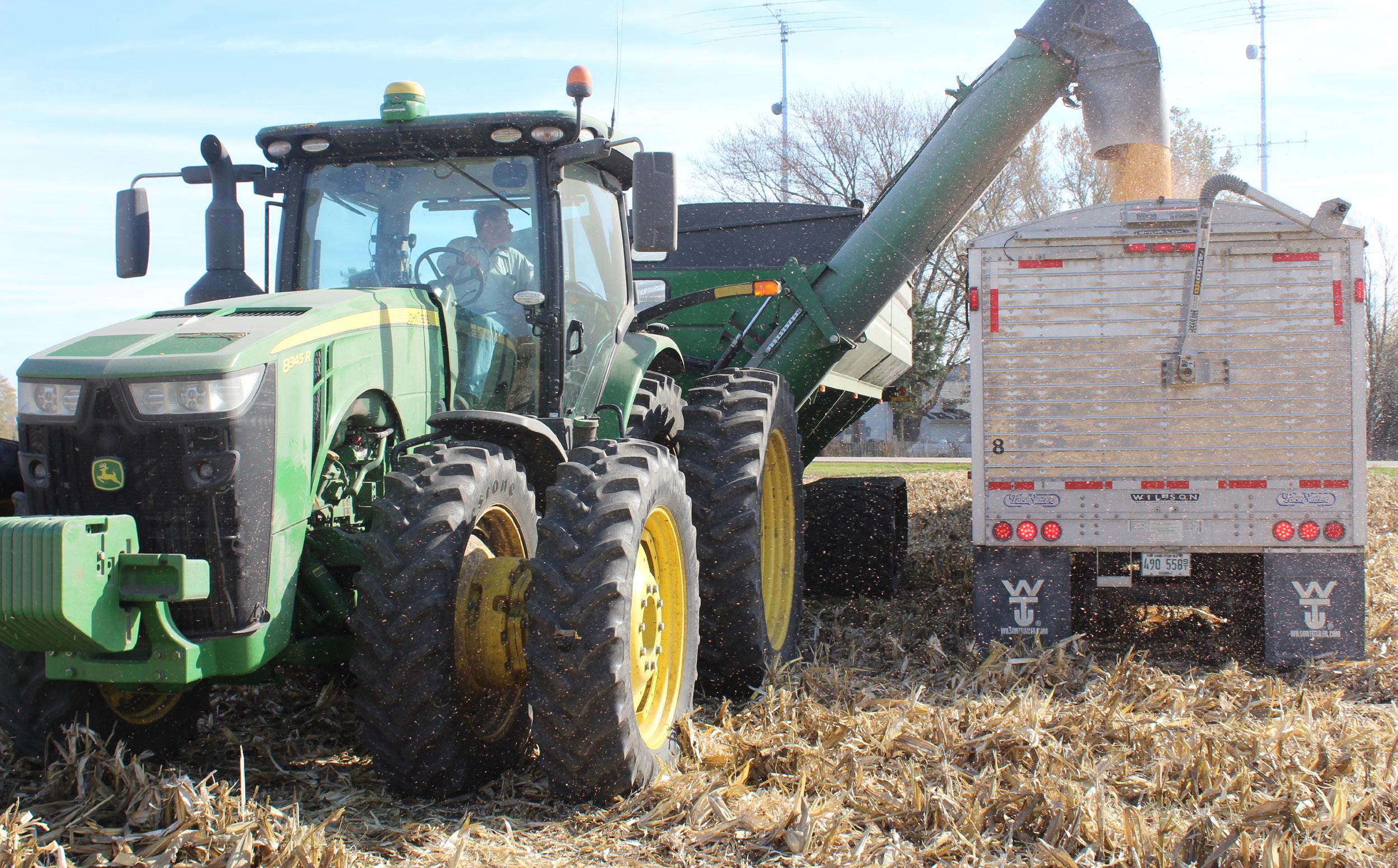



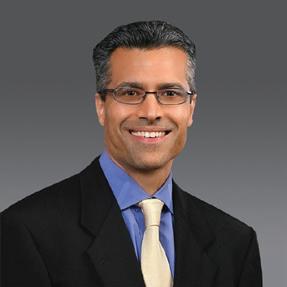
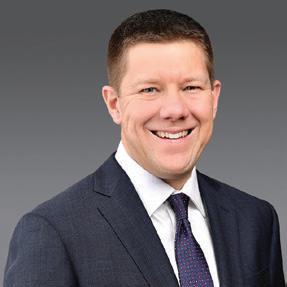

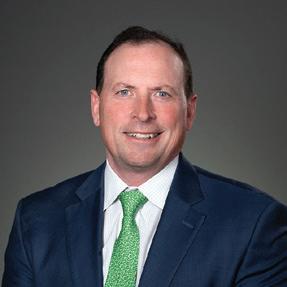

Alexander E. Michalow, MD
Bourbonnais & Watseka
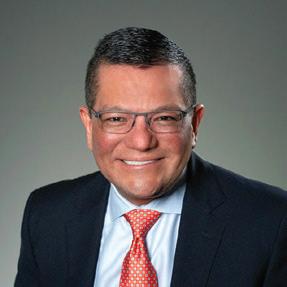
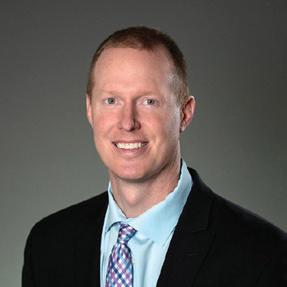
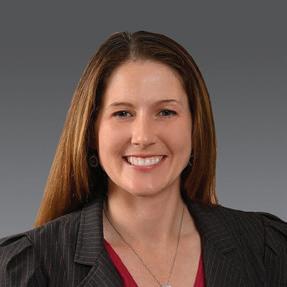
Reconstruction
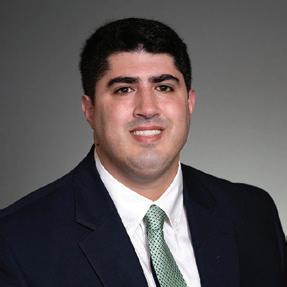
Majd Tarabichi, MD
Orthopedic Surgeon with Fellowship Training in Adult Reconstruction Surgery
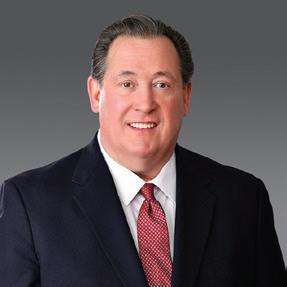
Michael J. Corcoran, MD
Orthopedic Surgeon with Fellowship Training in Sports Medicine
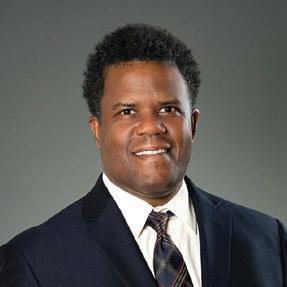
Kermit Muhammad, MD
Orthopedic Surgeon with Fellowship Training in Hand Surgery

Tom Antkowiak, MD, MS
Orthopedic Surgeon with Fellowship Training in Sports Medicine and Arthroscopic Surgery
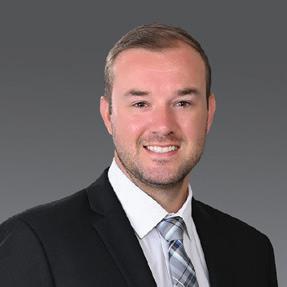
Austin M. Chinn, DP M Podiatric Foot and Ankle Surgeon
Bourbonnais & Watseka
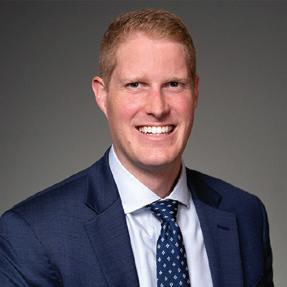
Brock Mullenbach, DO Physical Medicine & Rehabilitation Physician with Fellowship Training in Sports Medicine























“It just depends on the companies you work with and the products that you need for your farm, but a lot of companies are helping with zero-percent financing and giving interest rates that really help,” Roesner said.
“Sometimes cash flow is a concern in low commodity prices, where we’re kind of holding out for potential rallies and trying to find the best way to market that crop.”
Niche markets, such as dry milling for corn flour and chips, may provide a little bit of extra value, but those opportunities are not widespread and do not work for everyone, said the co-chair of the National Corn Growers Association’s Commodity Classic Management Committee.
In turn, Roesner said, farmers today must be creative in sourcing their inputs and making sure they have a sound marketing plan.
“We’ve definitely had to watch our purchases. We’re seeing that in the ag equipment sector now –kind of the pinch on the American
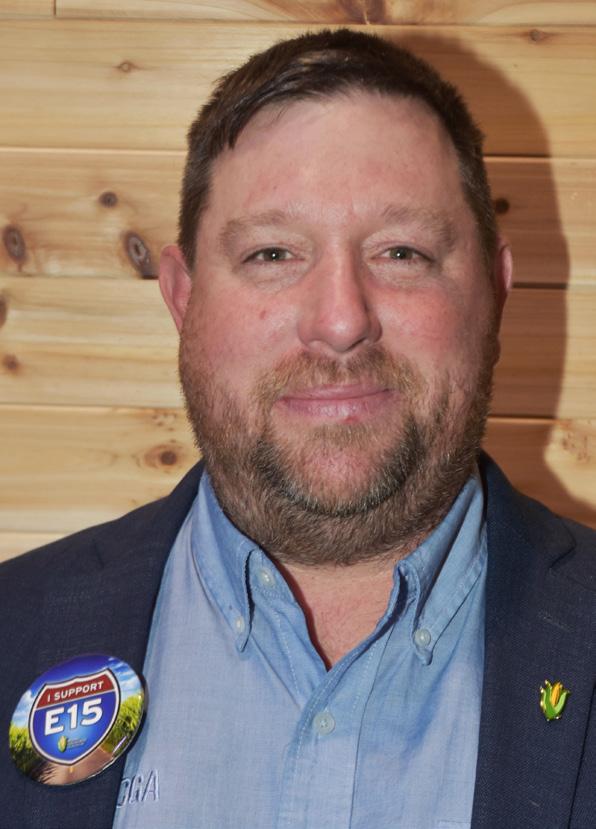
farmer and how that is not letting them have the ability to upgrade their equipment to improve their technology and to be more efficient,” he said.
“It’s definitely putting a strain on the spending that the American farmer can do to purchase those new pieces of equipment that will help make their farm more efficient.”
That penny-pinching, he added, includes delaying improvements
to farmland – for example, holding off on plans to install drainage tile.
But as farmers look for ways to reduce their costs, they cannot sacrifice their crop yield, Roesner said.
“The last thing we want to do is not apply a certain product that will affect our yield in the end,” he said. “Impacting yield will definitely impact the return we have on our investment.”
Hoosier farmers are fortunate that a lot of the crop grown in the state is sold and processed in the state, said the chair of the Indiana Corn Marketing Council’s Market Development Committee.
“We definitely have a robust demand sector within Indiana, whether that be ethanol, which consumes 45% of our crop, or the livestock industry that is vital to the row-crop farmer in Indiana,” he said.
“We also have the ability in areas to hit river markets and export markets, so we’ve got some grain to go there. But, yeah, I feel very fortunate in Indiana that we have those demand locations within our state that pull so much of our crop in and allow us to market that grain at a good price.”

Fair trade is vital – both coming and going, for buying and for selling, Roesner said.
“The American farmer needs fair trade to be able to get our crops to the locations that desire it. And we need to be able to source those goods that we may need, but we need it to be at a fair level,” he said.
“We’ve had some issues with certain countries in the past levying unfair tariffs on some of our products and then their products coming into the U.S. are given a little bit better rate. So, you know, farmers want fair trade, we want market growth and we want to be able to get our crop to the proper destination and to be able to fulfill the needs of the consumers around the world.”
While Mexico and Canada are the largest trading partners for farmers, Southeast Asia, India and Africa could be significant markets in the future, Roesner said.
“There’s a lot of potential out there for U.S. corn,” he said, also citing meat and ethanol produced from corn.
The biofuels market – particularly gasoline blended with 15% ethanol – is also crucial to corn

growers, Roesner said.
“We’re definitely encouraged with President Donald Trump’s waiver for summer sales of E15. We’ve got some work to do to make it a permanent fix and we’re pushing hard and have some good supporters within Congress to kind of push that effort forward.
“It’s definitely been an important issue to us and just to have that certainty that the American consumer can get this low-cost fuel that’s better for the environment and then helps out the ag industry is very important to us.”
Roesner said he is also grateful for the Trump administration’s continued support to fund conservation programs.
“The American farmer is a steward of the land and has done a tremendous job over the years in reducing erosion and making farming more sustainable,” he said.
“To see the U.S. Department of Agriculture has released these funds, allowing producers that want to participate, that want to build these structures or do whatever practices help with sustainability, that environmental effort, is great.”

When strokes happen, time is critical. If blood flow is disrupted by a clot or a ruptured vessel, brain cells quickly begin to die, which can result in irreversible brain damage, disability, or even death. Immediate intervention is essential.
The acronym B.E. F.A.S.T. can be helpful for recognizing the signs and symptoms of a stroke. These letters stand for:
Balance: The person has a sudden loss of balance, dizziness, or is walking differently.
Eyes: The person experiences vision loss, blurry or double vision, or has trouble seeing.
Face: Ask the person to smile. Look for drooping or unevenness.
Arms: Ask the person to raise both arms. If one arm drifts down, it may be a sign of stroke.
Speech: Ask the person to repeat a simple sentence. Slurred or confused speech can indicate a stroke.
Time: If any of these symptoms are observed, act quickly and call 911.
A timely response—from dialing 911 to arriving at the emergency room—can be the difference between a successful recovery and permanent disability or even death. Even in the event of a false alarm, first responders are glad to help, as every moment matters when a stroke is suspected. When in doubt, it is always better to be safe than sorry when it comes to a potential stroke.
Riverside Neurosurgeon Dr. Jehad Zakaria says, “Faster evaluation and intervention in the case of stroke significantly increases the chances of a good clinical outcome. Any patient or family member who recognizes symptoms of a stroke should immediately call 911.”
TIME IS OF THE ESSENCE
First responders are trained to act quickly regarding a potential stroke. EMS dispatchers gather crucial information, and first responders conduct assessments like the Cincinnati Stroke Scale. They also ask family members about the patient's baseline health and previous normal state, which can help guide treatment decisions.
Once the patient reaches the emergency department, they are fast-tracked for a CT scan to determine the type of stroke. This step is critical for determining the appropriate course of action.
There are several key risk factors that can increase your chances of suffering a stroke. Some can be managed or treated. Others, such as age, family history, and previous strokes, cannot.
Modifiable risk factors for stroke include:
Smoking
Excessive alcohol consumption
High cholesterol
Heart disease
Diabetes
High blood pressure
Sleep apnea
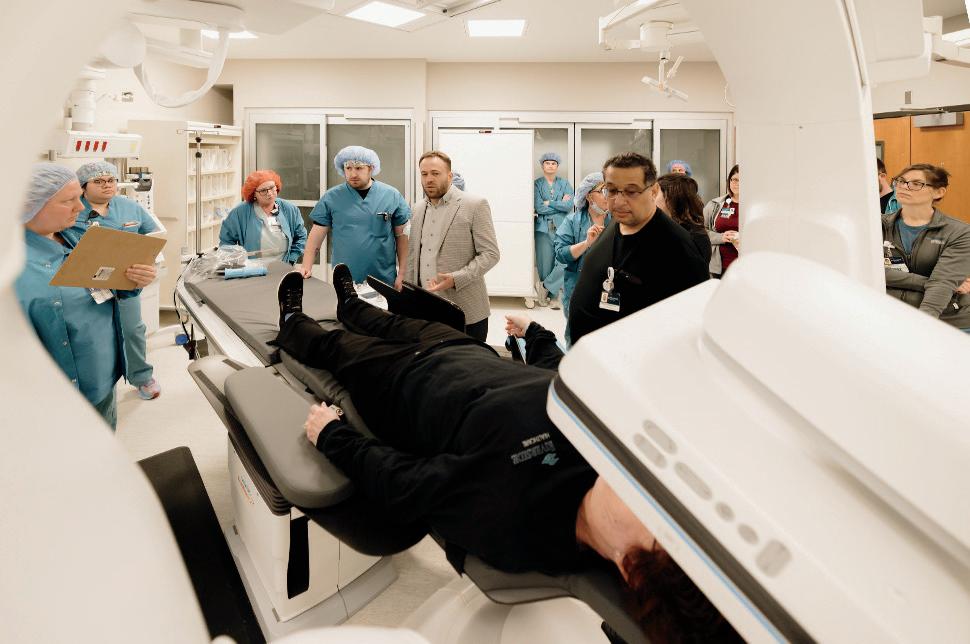
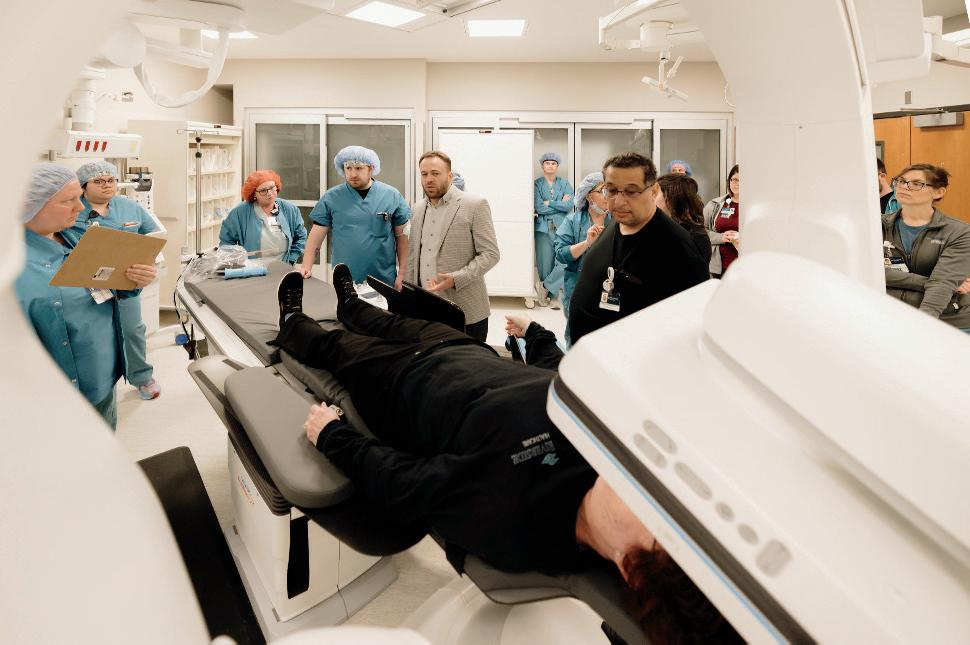
Individuals with concerns about any of these conditions or behaviors should talk to their primary care provider about options for management or treatment.
GETTING THE BEST CARE
Not all stroke care is created equal. New imaging technologies and neurosurgery techniques now allow for a wide range of minimally invasive procedures in a single neurointerventional suite. These advancements enable faster, more effective treatments, providing a better chance of a positive outcome for stroke survivors.
Riverside Medical Center’s new, area-exclusive neurointerventional biplane imaging suite will provide fast, accurate imaging of the brain to guide neurosurgeons treating a clot, hemorrhage, or aneurysm. This technology had previously only been available from hospitals outside the area, meaning patients had to be transported for care.
“Having to travel for advanced stroke care can put a strain on patients and their families,” said Dr. Zakaria. “I am grateful for Riverside investing in the technology needed to bring these services to our community because we can help many patients.”
For more information, call (815) 932-7200 or visit myrhc.net/stroke.
member who recognizes symptoms of a stroke should immediately call 911.




- Dr. Jehad Zakaria, Neurosurgeon with Riverside Brain & Spine Institute
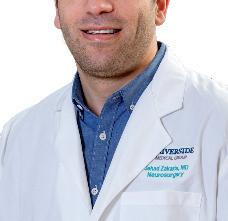





The multidisciplinary team at Riverside’s Brain & Spine Institute includes specialists in neurosurgery, pain management, and rehabilitation, providing complete care for
Acute Stroke Arteriovenous Malformations
Brain Aneurysms
Cerebral Hemorrhage
Cerebrovascular Disease
Cerebral Venous Sinus Thrombosis
Brain Tumors
Acute Arteriovenous Brain Aneurysms Tumors Cerebral Disease Venous Thrombosis
Transient Ischemic Attack

